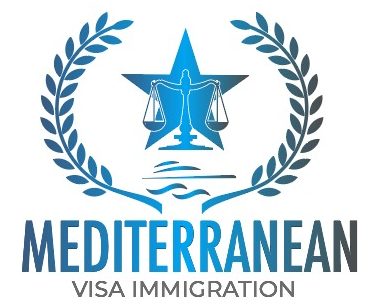
Home > New European Blue Card

The EU Blue Card is a work and residence permit designed to attract skilled professionals from outside the European Union (EU) to work and live in EU member states. It provides comprehensive socio-economic rights and a path towards permanent residence and EU citizenship.
To be eligible for the EU Blue Card, an individual must be a non-EU citizen with tertiary education or at least three years of professional experience in a relevant field. They also need an employment contract or a binding job offer from an EU employer. The EU Blue Card is issued by the immigration services of the country where employment and residence will be taken up.
The EU Blue Card offers several benefits to its holders. Firstly, it allows non-EU citizens to work legally in an EU member state. While citizens of some countries do not require a visa to enter the EU for work purposes, they still need a work permit, which the EU Blue Card provides. Additionally, the EU Blue Card allows individuals to continue their stay in Europe after completing their studies, giving them an opportunity to explore job prospects.
One of the key advantages of the EU Blue Card is that it provides equal working and salary conditions as nationals of the host country. This ensures fair treatment and helps attract highly skilled professionals. The card also enables free movement within the Schengen area, which includes most EU countries, allowing cardholders to travel visa-free. Furthermore, EU Blue Card holders are entitled to various socio-economic rights, such as unemployment benefits and favorable conditions for family reunification.
Another significant aspect of the EU Blue Card is the potential for permanent residence. Depending on the country of residence, individuals can apply for permanent residency after two to five years of being employed on the EU Blue Card. This provides a pathway towards long-term settlement and integration into European society.
It is important to note that the EU Blue Card is not available in all EU member states. Currently, 25 European countries participate in the program, excluding Denmark and Ireland. Each country may have its own specific rules, procedures, and requirements for issuing the EU Blue Card.
While there is no common EU-wide law or procedure for acquiring citizenship by descent, having European ancestry can potentially qualify individuals for EU citizenship in certain countries. Germany, Ireland, Italy, Poland, Portugal, Latvia, and Lithuania are among the countries that offer favorable routes for citizenship by descent. However, each EU country has its own specific rules and application processes for citizenship.
Dual citizenship, or having a second passport, is becoming increasingly popular for its security and freedom of movement benefits. Some EU countries, such as Germany, Greece, France, Ireland, Italy, Latvia, Lithuania, Malta, Portugal, Spain, Poland, and Sweden, allow dual citizenship. Key non-EU countries that permit dual citizenship include the USA, Canada, United Kingdom, and Turkey.
In addition to the EU Blue Card, some EU member states have implemented Citizenship by Investment (CbI) or Residency by Investment (RbI) programs, often referred to as “golden visas” or “golden passports.” These programs provide access to residency or citizenship in exchange for investment, attracting foreign investors.
In summary, the EU Blue Card offers non-EU citizens an opportunity to work and live in the European Union. It provides comprehensive socio-economic rights, equal working conditions, and a pathway to permanent residence. Dual citizenship and other investment programs further enhance the possibilities for individuals seeking to live and work in the EU. However, it’s important to be aware of the specific rules and requirements of each EU member state, as they can vary.
Mediterranean Immigration is a global leading online immigration solution provider company. We provide immigration assistance for different countries across the globe. We have the sole purpose of helping people to fulfill their immigration goals & dream destination.
© 2022 Mediterranean Immigration. All rights reserved.